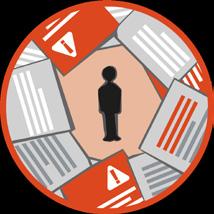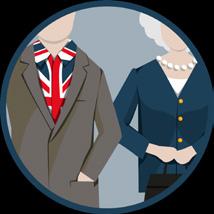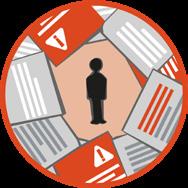March 2024 Fair Transition Unit
WHO GETS A GOOD DEAL?
REVEALING PUBLIC ATTITUDES TO TRANSPORT IN GREAT BRITAIN
Stephen Frost and Maya Singer Hobbs
ABOUT IPPR'S FAIR TRANSITION UNIT
IPPR’s Fair Transition Unit (FTU) was established in June 2022 as a new landmark initiative to carry forward the work of IPPR’s cross-party Environmental Justice Commission and award-winning work on environmental breakdown.
The FTU’s mission is “to accelerate progress in reducing emissions and restoring nature and secure a fairer, more just and thriving society”. To realise this mission, the FTU delivers projects, programmes and support to others focused on securing a fair transition to net zero and the restoration of nature.
The Environmental Justice Commission drew on views and recommendations from citizens from across the country in a way that has genuinely shaped policy thinking and had tangible policy and media impact. Building on this legacy, the FTU puts the public at the heart of its work through extensive public deliberation.
ABOUT IPPR
IPPR, the Institute for Public Policy Research, is an independent charity working towards a fairer, greener, and more prosperous society. We are researchers, communicators, and policy experts creating tangible progressive change, and turning bold ideas into common sense realities. Working across the UK, IPPR, IPPR North, and IPPR Scotland are deeply connected to the people of our nations and regions, and the issues our communities face.
We have helped shape national conversations and progressive policy change for more than 30 years. From making the early case for the minimum wage and tackling regional inequality, to proposing a windfall tax on energy companies, IPPR’s research and policy work has put forward practical solutions for the crises facing society.
IPPR 4th floor, 8 Storey's Gate London
SW1P 3AY
E: info@ippr.org
www.ippr.org
Registered charity no: 800065 (England and Wales), SC046557 (Scotland)
This paper was first published in March 2024. © IPPR 2024
The contents and opinions expressed in this paper are those of the authors only.
The progressive policy think tank
IPPR | Who gets a good deal? Revealing public attitudes to transport in Great Britain 3 CONTENTS Summary .......................................................................................................................... 5 1. Introduction to the seven segments .................................................................... 7 2. Public attitudes and values about transport ................................................... 11 Transport isn’t working, for some more than others 11 People don’t feel able to change the transport system, and Westminster isn’t trusted to fix it ................................................................... 13 Cars are seen as essential to today’s transport system, but public transport is valued more highly ......................................................... 14 People are open to changing how they travel ................................................. 17 High quality local public transport is valued by everyone ...........................20 3. Conclusions and recommendations ................................................................... 25 Policy recommendations ....................................................................................... 26 References.................................................................................................................... 28
ABOUT THE AUTHORS
Stephen Frost is a principal research fellow at IPPR.
Maya Singer Hobbs is a senior research fellow at IPPR.
ACKNOWLEDGEMENTS
The authors are grateful to Ed Hodgson (More in Common), Anouschka Rajah (More in Common), Lorraine Whitmarsh (Centre for Climate Change and Social Transformations), Emma James (Climate Outreach) and Conleth Burns (More in Common) for their support with this project. Their insights have been invaluable to both the design of this research and the interpretation of the survey findings.
Within IPPR, the authors would like to thank Emma Killick and Luke Murphy for their support with this research, and Abi Hynes and Richard Maclean for their work in designing and publishing this report. Our thanks also to Piers Ford for support with copyediting.
The level of engagement by our workshop attendees was greatly appreciated.
Thank you: Tim Burns, Lucy Bush, Jamie Clarke, Nicola Kane, Greg Marsden, Mari Martiskainen, Holly Mizser-Jones, Robert Pearce-Higgins, Richard Riley, Nick Sanderson, Prof Alan Tapp, Bertie Wnek and Andy Yuille.
This report is part of a larger research programme on the future of transport. This programme is kindly supported by Calouste Gulbenkian, the Foundation for Integrated Transport, Gower Street, John Ellerman Foundation, Treebeard Trust, and an independent family trust.



Download

This document is available to download as a free PDF and in other formats at: https://www.ippr.org/articles/who-gets-a-good-deal
Citation
If you are using this document in your own writing, our preferred citation is: Frost S and Singer Hobbs M (2024) Who gets a good deal? Revealing public attitudes to transport in Great Britain, IPPR. https://www.ippr.org/articles/who-gets-a-good-deal
Permission to share
This document is published under a creative commons licence: Attribution-NonCommercial-NoDerivs 2.0 UK http://creativecommons.org/licenses/by-nc-nd/2.0/uk/ For commercial use, please contact info@ippr.org
4 IPPR | Who gets a good deal? Revealing public attitudes to transport in Great Britain
SUMMARY
Transport isn’t working. That’s the message from the British public. This is especially true if you’re on a low income, disabled or living in the countryside. The cost of living crisis has exposed the shortcomings of our transport system, with many having to cut back on trips – particularly those with the least financial resources.
Freedom to get about in the way you choose is a key value for the British public. The transport system should support us to travel in ways that are affordable and do as little social and environmental harm as possible. But decades of designing our public realm around the convenience of private cars have locked many into a mode of transport that is unsustainable – for them, their communities, and the environment. It requires a leap of imagination to get us out of this situation.
The good news is people want transport to change. This survey puts to bed the idea that people can be pigeonholed into being just ‘drivers’. The public’s attitudes to transport are largely pragmatic, not ideological, and there is recognition of the benefits that could come from the shift to a less car-centred transport system. Cars don’t define our identities and, regardless of car ownership, the key priority for the future is a public transport system that works for more of us.
Delivering the scale of change required will mean working in new ways. There is little trust in national decision makers or transport companies, and no sense that politicians understand the transport challenges that different areas face. More power and resources must be shared with local leaders, who in turn should find ways to share them with their communities.
This report presents the findings of just one survey but what it has to say matches findings from previous research: people will back change if they can see it is fair and effective, and is being implemented with empathy and support for those asked to do things differently. In an age of misinformation, and with some politicians keen to use environmental and progressive transport policies to score political points, it is only through a close and transparent partnership between the public and decision makers that we will deliver a transport system that is fairer, greener and works better for communities across Great Britain.
KEY SURVEY FINDINGS
• The rising cost of living is changing how people travel. A fifth of people (20 per cent) are worried about being able to afford the transport they need to get around. Seven in 10 people (71 per cent) have changed how they travel to reduce transport costs in the last two years.
• Those who live in rural areas or on low incomes are seen as getting the worst deal from transport (a net score of -28 per cent in both cases). Those on high incomes are seen as getting the best deal (a net positive score of 44 per cent).
• People have little say in decisions that affect them, and little trust in decision makers. Almost two thirds (63 per cent) say they have no or a limited say over transport decisions that affect them. Just 13 per cent say they most trust national government to make decisions about transport in their local area, compared with 37 per cent who say the same about local councils.
• Many are dependent on their cars, but this doesn’t mean they don’t want alternatives. Almost six in 10 (58 per cent) believe cars are currently essential for a full life, rising to almost three quarters (72 per cent) of people in rural areas.
IPPR | Who gets a good deal? Revealing public attitudes to transport in Great Britain 5
Almost a third (32 per cent) of respondents said they would like to use public transport more (only 10 per cent say less), and a similar number (38 per cent) say they would like to use active modes more (with only 6 per cent saying less).
• Public transport is more highly valued than private cars. Most people (53 per cent) think public transport to get to work is a necessity. This is higher than those who say the same about owning a car (20 per cent) and well above those who say the same about having more than one car per household (4 per cent). The favoured policies to help reduce transport costs are decreasing public transport fares and making public transport an option for more journeys.
POLICY RECOMMENDATIONS
• Public involvement is crucial to a fair transition for transport and rebuilding trust in government decision making. At the local and national level, governments must put in place high quality, well-resourced, place-based public engagement strategies for sustainable travel, which include meaningful opportunities for people to shape the future of transport across the UK and in their neighbourhoods and villages.
• Decision making on transport must be done locally wherever feasible, and policies to change how people travel framed in terms of the benefits that matter most within specific communities. Further devolution of transport powers, alongside long-term funding security for transport authorities, is essential to making transport work better across the country.
• A bold commitment to improve public transport should be central to the manifestos of those running in upcoming local or general elections. This should be integrated with making streets safer for people walking, wheeling and cycling.
• Ultimately, a new transport strategy is needed for England and the UK that sets out a desired future for how people travel and a fair approach to achieving it
6 IPPR | Who gets a good deal? Revealing public attitudes to transport in Great Britain
1. INTRODUCTION TO THE SEVEN SEGMENTS
This research presents the findings from a national survey of the British public undertaken in December 2023.1 The survey explored behaviours, attitudes to transport and perspectives on the priorities for transport over the next decade. It was conducted by More in Common, with the advice of the Centre for Climate Change and Social Transformations (CAST) and Climate Outreach. As well as allowing a consideration of how demographics shape public opinion, the survey design supports analysis of how people’s underlying beliefs and values impact their views on transport.
The findings from this survey were presented to a stakeholder panel drawn from academia, transport practitioners and climate communication specialists in January 2024. Within a participative workshop format, this group interrogated the results and their implications for transport policymaking.
Throughout this report we will refer to the seven British segments featured in Britain Talks Climate and Britain’s Choice,2 and what these can tell us about the level of consensus that exists on transport issues. These seven segments are based on More in Common’s core beliefs model and summarised in figure 1.1.
Linking our findings to this model of people’s values provides insights into how to communicate the necessary changes to our travel methods in a way that resonates across different groups. These seven segments range from Progressive Activists, who are politically active and for whom climate change is central to their identity and politics, to Backbone Conservatives, who are patriotic and proud of Britain’s environmental achievements but are dismissive of ‘virtue signalling’ through symbolic lifestyle changes (Wang et al 2020). These segments can also be used to understand the perspectives of politically salient groups – for example, Established Liberals typically represented views within the ‘blue wall’, and Loyal Nationals those within the ‘red wall’.
1 Undertaken online between 12th-14th December with a sample size of 2,041 adults. The panel covers Great Britain (excluding Norther Ireland) and is weighted to be nationally representative.
2 See https://climateoutreach.org/britain-talks-climate/ and https://www.britainschoice.uk
IPPR | Who gets a good deal? Revealing public attitudes to transport in Great Britain 7
FIGURE 1.1: INTRODUCING THE SEVEN BRITISH SEGMENTS
The seven British segments used in this research are based on More in Common’s core beliefs model


...politics is an important part of their identity and they seek to correct longstanding injustices. ...care about others, anxious about the future and wish for more compromise.



...feel unheard and unrepresented Busy surviving from day to day. ...has done well and means well towards others, but sees a lot of good in the status quo. ...patriotic, feel society has become more unfair and stacked against everyday working people.
Source: Authors’ analysis of Wang et al (2020)


...values a well-ordered society and takes pride in hard work. Desires strong leadership to keep people in line.
...proud of the country, and optimistic about Britain’s future.
The cost of living is seen as the key issue facing the country by all seven segments. This is followed by supporting the NHS, levels of immigration, and climate and environment. The two disengaged groups, the ‘battlers’ and ‘traditionalists’, are the only ones where under half are very or somewhat worried about climate change (49 per cent and 46 per cent respectively). For Progressive Activists and Civic Pragmatists, more than nine in 10 (91 per cent) and eight in 10 (82 per cent) are worried about the climate. This gives a sense of the context that may inform views on transport – particularly the impact of rising living costs.
The segments also have different starting points in terms of their travel behaviours and ownership of private cars. In table 1.1 some of the most notable features of the different groups’ transport access and travel habits are summarised. This shows that Disengaged Battlers are least likely to own a car (just 52 per cent compared with an average of 70 per cent) and Backbone Conservatives are the most frequent drivers (almost three quarters, 73 per cent, use a car at least once a week compared with a 61 per cent average). Progressive Activists are the most likely to travel on foot or by wheelchair, with over half (55 per cent) saying they did this at least five times a week.
8 IPPR | Who gets a good deal? Revealing public attitudes to transport in Great Britain
Progressive Activists Civic Pragmatists
Disengaged Battlers Established Liberals Loyal Nationals Disengaged Traditionalists Backbone Conservatives
TABLE 1.1: SUMMARY OF TRAVEL CHARACTERISTICS OF THE SEVEN BRITISH SEGMENTS
Travel behaviour characteristics of different segments based on responses to the survey commissioned for this research
Segment
Progressive Activists

Civic Pragmatists

Disengaged Battlers

Established Liberals

Loyal Nationals

Disengaged Traditionalists

Backbone Conservatives

Key travel characteristics
63 per cent own a car. 75 per cent have a driving license.
Most likely to walk or wheel3 regularly (76 per cent) and to use the bus (22 per cent). Highest likelihood of using train, tram or tube – only 19 per cent say they use this less than once a year (compared to 36 per cent on average).
Second least likely to drive three or more times a week (39 per cent).
Travel behaviours broadly reflect the average for the British public.
70 per cent own a car. 79 per cent have a driving license.
In line with general public for average driving three or more times a week (44 per cent, average 43 per cent).
By far the least likely to own a car (only 52 per cent) or have a driving license (63 per cent).
Just under half (49 per cent) drive less than once a year.
Least likely to take long-distance journeys within the UK.
Low car ownership generally (64 per cent), but most likely to own multiple cars and electric cars.
More likely to take public and active transport than average.
High car ownership (74 per cent, second highest of all segments)
Most likely to have mobility issues (21 per cent)
High car use, but also very likely to travel by foot.
Rarely takes long-distance journeys in the UK.
Unlikely to ever consider buying an electric car.
Biggest segment of drivers (79 per cent), and most likely to own multiple cars. Unlikely to travel by public transport.
Many are considering an electric car.
3 We use the term ‘wheel’ to capture the diversity of people and uses that are hidden when we solely focus on ‘walking’. Walking is also a term that some wheelchair and mobility scooter users do not identify with, so using ‘wheeling’ alongside ‘walking’ is more inclusive.
IPPR | Who gets a good deal? Revealing public attitudes to transport in Great Britain 9
Source: Authors’ analysis of polling commissioned for this report
Understanding different starting points on transport in terms of values and behaviours gives practitioners and politicians a way of thinking about how to communicate policy. The seven segments provide a way to frame narratives and public engagement exercises so that certain groups aren’t unintentionally alienated, and everyone can be involved in the co-design of solutions.
Although the segments may be helpful in informing communication approaches, this survey shows that it is largely not your values that dictate your travel behaviours. In particular, where you live plays a crucial role in shaping how you travel. Across the responses to this survey, a key determining factor in travel behaviours and opinions was clearly whether someone lives in a rural or urban area. Throughout this report the segments will be highlighted where they provide the most relevant lens to understand differing viewpoints, but other demographics will also be explored where they are more pertinent to understanding what is shaping public opinion.
10 IPPR | Who gets a good deal? Revealing public attitudes to transport in Great Britain
2. PUBLIC ATTITUDES AND VALUES ABOUT TRANSPORT
TRANSPORT ISN’T WORKING, FOR SOME MORE THAN OTHERS
Transport costs are a source of concern for many in Britain. A fifth of people (20 per cent) are worried about being able to afford the transport they need to get around. Figure 2.1 shows how this is reflected across different groups. Those on the very lowest incomes are the most worried about transport costs (43 per cent of those on incomes under £10,000), and those with mobility issues also have particularly high levels of concern (32 per cent). Young people are significantly more likely to be concerned about transport costs than older people: more than double the number of 18–24-year-olds (24 per cent) say they worry, compared with the number of those over 75 years old (11 per cent). Of the segments, the Loyal Nationals are the most concerned about transport costs.
FIGURE
2.1: THE COST OF TRANSPORT IS A SIGNIFICANT WORRY FOR A WIDE RANGE OF GROUPS
Those in strong agreement with the statement ‘I worry about being able to afford the transport that I need to use to get around,’ split by select demographics
Source: Authors’ analysis of polling commissioned for this report
The rising cost of living is shaping people’s transport behaviours. Seven in 10 people (71 per cent) have changed how they travelled to reduce transport costs in the last two years. This includes reducing the number of long trips they make (27
IPPR | Who gets a good deal? Revealing public attitudes to transport in Great Britain 11
0% 5% 10% 15% 20% 25% 30% 35% 40% 45%
18-24yrolds25-40yrolds41-55yrolds56-74yrolds75+yrolds ProgressiveActivistsCivicPragmatistsDisengagedBattlersEstablishedLiberalsLoyalNationals DisengagedTraditionalistsBackboneConservativesMobilityissueNomobilityissueLessthan£10,000
All
£10,000-£14,999
per cent of respondents), using cheaper modes of transport for short trips (19 per cent) and reducing the number of cars in their household (11 per cent on average, rising to 15 per cent in urban areas).
Many are considering further changes to reduce transport costs in 2024. Around a third of people are likely to make fewer long trips (31 per cent) or shift to using cheaper modes of transport for short trips (37 per cent). More than one in 10 (15 per cent) say they are likely to consider reducing the number of cars in their household, rising to a quarter (25 per cent) of those surveyed who lived in Greater London.
This picture of the impact of transport costs on people’s lives is the backdrop for one of the starkest findings in this survey. Figure 2.2 details the groups in society that people feel get a ‘good deal’ or ‘bad deal’ from the transport system. Within this it is clear that those who live in rural areas or on low incomes are seen as getting the worst deal from transport (a net score of -28 per cent in both cases). In contrast, those on high incomes are seen to get the best deal (a net positive score of 44 per cent). People also see the system as being stacked against those who are disabled, don’t own a car, or rely on public transport. Conversely, if you are able to walk regularly, cycle or live in cities, you are perceived to have a better deal. The positive scores for those who regularly walk or cycle could be explained in different ways; one possibility is that it is tied to the score for cities, which are more densely populated, and reflects the desire to access services and amenities by these modes.
FIGURE 2.2: THE PUBLIC FEEL MANY GROUPS GET A BAD DEAL FROM THE CURRENT TRANSPORT SYSTEM, INCLUDING THOSE ON LOW INCOMES OR LIVING IN RURAL AREAS
Net responses to the question ‘Thinking about the current transport system, do you think that the following groups of people get a good deal or a bad deal?’ Positive figures indicate a ‘good deal’, negative a ‘bad deal’
People with high incomes
People who regularly walk
People who live in cities
People who regularly cycle
People who own an electric car
People like me
People who own a petrol or diesel car
People with young children
People who live near main roads
People who use trains and buses
People who do not own a car
Disabled people
People with low incomes
People who live in rural areas
12 IPPR | Who gets a good deal? Revealing public attitudes to transport in Great Britain
-40% -30% -20% -10% 0% 10% 20% 30% 40% 50%
Source: Authors’ analysis of polling commissioned for this report
PEOPLE DON’T FEEL ABLE TO CHANGE THE TRANSPORT SYSTEM, AND WESTMINSTER ISN’T TRUSTED TO FIX IT
Most people feel they don’t have a voice in shaping transport decisions. Almost two thirds (63 per cent) suggest they have a limited say over transport decisions that affect them. Figure 2.3 shows how this differs across segments and geographies. Most see themselves as having very little power to change how transport works. This is particularly true of those in rural areas and Disengaged Battlers. Over four in 10 (43 per cent) of those in rural areas feel they have no say over transport decisions, compared with a quarter (26 per cent) of those in urban areas. Disengaged Battlers are the most likely to believe they have no say (almost half, 48 per cent) compared with Established Liberals (the least likely to say they have no say, at 23 per cent).
FIGURE 2.3: OVER A THIRD OF PEOPLE BELIEVE THEY HAVE ‘NO SAY AT ALL’ IN TRANSPORT DECISIONS THAT AFFECT THEM - THIS IS EVEN HIGHER FOR THOSE IN RURAL AREAS
Groups who indicated they agree either completely or a little with the statement ‘I have no say at all in transport decisions that might affect me’
Urban/city centre
Rural area
Backbone Conservatives
Disengaged Traditionalists
Loyal Nationals
Established Liberals
Disengaged Battlers
Civic Pragmatists
All Progressive Activists
I have no say at all in transport decisions that might a ect me I have litte say over transport decisions that might a ect me
Source: Authors’ analysis of polling commissioned for this report
Adding to this lack of voice is the perception that politicians don’t understand the transport challenges facing local areas. Half of respondents (50 per cent) agree strongly that ‘politicians have a bad understanding of what transport is like in areas like mine’, with only 6 per cent thinking the opposite. Similarly, less than one in 10 (8 per cent) believe that politicians have a good understanding of ‘what transport is needed in areas like mine’.
Transport decisions take place in a low trust environment. Very few people are likely to trust national government most to make decisions about transport in their local area (just 13 per cent on average, falling to as low as 8 per cent for Civic Pragmatists and Disengaged Battlers). Across all the segments, the most trusted groups to make transport decisions are local councils and residents (37 per cent and 31 per cent on average). However, for the two disengaged segments, the most
IPPR | Who gets a good deal? Revealing public attitudes to transport in Great Britain 13
0% 10% 20% 30% 40% 50% 60% 70% 80%
likely answer to the question ‘Who do you trust to make decisions about transport in your local area?’ was ‘none of the above’ (41 per cent for Disengaged Battlers and 31 per cent for Disengaged Traditionalists).
The Labour Party is more trusted than the Conservative Party on a range of transport issues. However, neither is trusted by most of the British public. Figure 2.4 shows people’s responses to the question ‘Who do you trust more?’ across a mix of transport issues. The largest gap between Labour and the Conservatives is in ‘making the transport system work better for people on low incomes’ (34 per cent trusting Labour more, compared with 12 per cent trusting Conservatives) and ‘improving public transport’ (33 per cent compared with 13 per cent). Labour is also more trusted on ‘representing the interests of drivers’ and fixing potholes. Across all the issues identified, around four in 10 (38−48 per cent) say they trust neither of the two parties most likely to lead the next government, and 16−18 per cent say they ‘don’t know’ who they trust more.
2.4:
THAN BOTH THE MAIN PARTIES
Responses to the question ‘Which party do you trust more?’
Make the transport system work for people on low incomes
Improve public transport
Prioritise issues that a ect your local area
Protect the environment
Fix potholes on the roads
Represent the interests of drivers
Labour party
Conservative party
Source: Authors’ analysis of polling commissioned for this report
Neither Don’t know
CARS ARE SEEN AS ESSENTIAL TO TODAY’S TRANSPORT SYSTEM, BUT PUBLIC TRANSPORT IS VALUED MORE HIGHLY
Cars are considered essential by most people, particularly outside London and other cities.4 Figure 2.5 shows the public’s views on whether or not a car is needed to live a full life where they live. Almost six in 10 (58 per cent) believe cars are essential for a full life, rising to almost three quarters (72 per cent) of people in rural areas. By far the least likely group to consider a car necessary are those living in Greater London (just four in 10, 42 per cent) whereas people in the South East are the most likely to see a car as being needed (over two thirds, 68 per cent). Having young children was
4 Further discussion of the social norms associated with car ownership and use can be found in Powell and James (2023)
14 IPPR | Who gets a good deal? Revealing public attitudes to transport in Great Britain
FIGURE
THE LABOUR PARTY IS THE MOST TRUSTED ON A RANGE OF TRANSPORT ISSUES BUT ‘NEITHER’ AND ‘DON’T KNOW’ PERFORM BETTER
0% 10% 20% 30% 40% 50% 60% 70% 80% 90% 100%
also a significant factor in perceptions of the need for a car – around half (52 per cent) of those without children consider a car necessary to live a full life, compared with two thirds (65 per cent) of those with young children.
FIGURE 2.5: THOSE LIVING IN RURAL AREAS ARE FAR MORE LIKELY TO BELIEVE YOU NEED TO OWN A CAR TO LIVE A FULL LIFE THAN THOSE IN URBAN AREAS, ESPECIALLY LONDON
Responses to the question ‘Which of the following statements comes closer to your view?’
All
East Midlands
East of England
Greater London
North East England
North West England
South East England
South West England
West Midlands
Yorkshire and the Humber
Scotland
Wales
Child 15 or younger
Older child
I don't have children
Rural area
Urban/city centre
To live a full life where I live, you need to own a car.
To live a full life where I live, you do not need to own a car.
Don't know
Source: Authors’ analysis of polling commissioned for this report
The vital role played by cars in many people’s lives comes through across a range of questions. This survey also shows:
• Over eight in 10 people (83 per cent) who own a car say they would find life more difficult without one, while a similar number (81 per cent) without a car say life would be easier with one.
• Four in 10 people (42 per cent) feel that having a car is worth the cost, and more than one in five people (23 per cent) think it’s worth having a car ‘for the times you need it’, regardless of whether you use it regularly.
• Policies that relate to road maintenance and making car travel more affordable or parking easier are popular (detailed in following sections).
The need for private cars, or perception that this is the case, makes people far less likely to support restrictions on their use than those aimed at other activities with a public health or social cost. Figure 2.6 details the strength of agreement across three statements on whether it is acceptable to smoke, play loud music or drive, where these activities impact others. Whereas three quarters of people are likely to agree people shouldn’t smoke (73 per cent) and play loud music (77 per cent) where it impacts others, only one in 10 (12 per cent) feel the same about driving in ‘highly populated areas where other people have to breathe the car fumes’.
IPPR | Who gets a good deal? Revealing public attitudes to transport in Great Britain 15
0% 10% 20% 30% 40% 50% 60% 70% 80% 90% 100%
The size of this effect5 differs across segments and demographics. White British, Irish and other groups see the biggest gaps between the acceptability of these activities, while other ethnicities are more likely to consider driving in highly populated areas unacceptable (just 8 per cent of white groups compared with 45 per cent of Black and Black British respondents, and 47 per cent of multi-ethnic respondents). Disengaged Battlers are the least likely to consider car use as an issue (with the only net negative score for this) and the least likely to consider smoking an antisocial act.
FIGURE 2.6: THE HARMS CAUSED BY CARS ARE MORE ACCEPTED THAN SMOKING OR LOUD MUSIC, WITH THIS AFFECT VARYING BY SEGMENT, CAR OWNERSHIP AND ETHNICITY
Level of net agreement to the statements that ‘People shouldn’t smoke/play loud music/ drive in highly populated areas where people have to breathe the cigarette fumes/hear it/ breathe the car fumes’
Other ethnic group
White British, Irish and other
Mixed or multi-ethnic group
Black or Black British
Asian or Asian British
Backbone Conservatives
Disengaged Traditionalists
Loyal Nationals
Established Liberals
Disengaged Battlers
Civic Pragmatists
Progressive Activists
People shouldn’t smoke in highly populated areas where other people have to breathe the cigarette fumes People shouldn’t play loud music in highly populated areas where other people have to hear it
People shouldn’t drive in highly populated areas where other people have to breathe the car fumes
Note: Net score is calculated as the percentage who ‘strongly’ or ‘somewhat’ agree minus those who ‘strongly’ or ‘somewhat’ disagree with each statement.
Source: Authors’ analysis of polling commissioned for this report
Despite the high number of people who consider a car essential to a full life, it is less likely to be considered a necessity for living in the UK today than public transport. Table 2.1 shows how necessary people consider different things in life to be, from going to the cinema to heating your home. Public transport to work is seen as a necessity by most people (53 per cent), above not only a car (at 20 per cent) but also a phone (46 per cent) or an internet connection (43 per cent). Public
5 Termed ‘motonormativity’ by the academics who first identified it. Discussion of this can be found in Walker et al (2022).
16 IPPR | Who gets a good deal? Revealing public attitudes to transport in Great Britain
-20% 0% 20% 40% 60% 80% 100% All
Own a car Do not own a car
transport to see family and friends is also rated higher than a car (35 per cent considered this necessary). Having more than one car per household is seen as less necessary than having access to a cycle (4 per cent compared with 8 per cent). Even those who own a car say public transport is more necessary than a car in the UK today.
TABLE 2.1: PUBLIC TRANSPORT IS MORE LIKELY TO BE CONSIDERED A NECESSITY THAN A CAR, REGARDLESS OF WHETHER YOU OWN ONE
Percentage of respondents who considered the following item to be a necessity for people living in the UK today, with transport responses highlighted
Note: Question asked: ‘Thinking about life for people living in the UK today, would you consider each of the following a necessity or a luxury?’ Respondents were given five response options rated 1 to 5, where 1 is a necessity and 5 a luxury – the above captures those who rated these items the highest level of necessity.
Source: Authors’ analysis of polling commissioned for this report
PEOPLE ARE OPEN TO CHANGING HOW THEY TRAVEL
People want the opportunity to use public transport and active travel more. Almost a third (32 per cent) of respondents say they would like to use public transport more (only 10 per cent say less), and 38 per cent would like to use active modes more (with only 6 per cent saying less). Figure 2.7 details the journeys that people would be most or least likely to swap if another mode of transport were available that didn’t take longer or cost more. The most desirable journeys that people would change to another mode were accessing green space (36 per cent would not travel by car if another option was available) and visiting friends or family (26 per cent). The journeys people would be least likely to change from a car are those to the supermarket (61 per cent would continue to drive regardless of another option being available), and those over long distances (57 per cent) or made for leisure (also 57 per cent).
IPPR | Who gets a good deal? Revealing public attitudes to transport in Great Britain 17
Item All respondents Those own a car Those who do not own a car Energy to heat the home 71% 70% 72% Clothing 59% 58% 60% Food for three meals a day 58% 59% 58% Public transport to and from work 53% 49% 61% A phone 46% 45% 48% Internet connection at home 43% 43% 45% Public transport to see family and friends 35% 33% 42% A car 20% 25% 9% A bike or adapted cycle 8% 7% 9% Holidays 6% 6% 6% More than one car per household 4% 5% 2% Alcoholic beverages 3% 4% 2% Eating out at a restaurant once a month 2% 3% 1% Going to the cinema once a month 2% 2% 2%
FIGURE 2.7: PEOPLE WOULD BE MOST LIKELY TO CHANGE THE JOURNEYS THEY MAKE BY CAR TO GREEN SPACES AND SOCIALISING
Response to the question ‘For the journeys you make by car, suppose there was another mode of transport you could use to make the journey within the same time and cost. In this case how likely would you be to still travel by car?’
Trips to the supermarket
Making long-distance journeys in the UK
For day trips, holidays or other leisure trips
Visiting friends or family members
Commuting to your place of work or education
To access green spaces (such as local parks) or nature
Care-giving
Dropping o children at school
I would likely travel by car
Don't know I never make this journey by car I would likely not travel by car
Source: Authors’ analysis of polling commissioned for this report
A large proportion of the British public believe it would be possible to find an alternative to driving if people really wanted to. Four in 10 respondents (41 per cent) say they personally could find an alternative to using a car and over half (52 per cent) say they felt other people could find a substitute to driving. As seen elsewhere, those who live in urban areas are much more likely to say they could find an alternative to the car than those living in rural areas.
When considering what’s important in a local area, people rank the provision of green spaces and local services, and access to public transport and safe streets for walking and wheeling, higher than convenient parking. The relative level of importance placed on these by the different segments is shown in Figure 2.8. Over two thirds (67 per cent) consider ‘people are able to get many places without driving’ as a key factor impacting how they feel about a local area.
In other survey responses, people clearly show that lower levels of driving, and neighbourhoods with fewer cars, would have significant benefits:
• Most people find the following arguments in favour of fewer people driving very or somewhat convincing: it would make our air cleaner (70 per cent), it would reduce carbon emissions (69 per cent), it would reduce noise levels (61 per cent), it would make our streets safer (58 per cent), it would encourage people to be more active and healthy (57 per cent), and it would make streets a nicer place to meet friends (51 per cent).
18 IPPR | Who gets a good deal? Revealing public attitudes to transport in Great Britain
0% 10% 20% 30% 40% 50% 60% 70% 80% 90% 100%
or childcare
• A quarter (27 per cent) would prefer if there were fewer cars ‘driving in my area’, with under one in five (15 per cent) seeing ‘no need to reduce the number of cars in my local area’.
• A quarter (25 per cent) would feel safer if there were fewer cars on the roads.
TABLE 2.2: GREEN SPACES, PUBLIC TRANSPORT AND ACCESSIBLE STREETS ARE ALL MORE IMPORTANT TO A LOCAL AREA THAN CONVENIENT PARKING SPACES
Ranking based on respondents who said the following impacted how they feel about their local area ‘very much’ and ‘somewhat’. Ordered based on responses across all segments
Source: Authors’ analysis of polling commissioned for this report
People find arguments relating to freedom compelling, whether that relates to the use of cars or being able to use other transport modes. As shown in Figure 2.9, they are likely to respond positively to both the statement that people should be ‘free to drive whenever or wherever they want’ (with a net score of 42 per cent saying this was ‘convincing’) and they should be ‘able to get around without needing a car’ (net convincing score of 23 per cent). The level to which these arguments are found convincing differs across the seven segments, but only Progressive Activists see the idea of the ‘freedom not to drive’ as more compelling than the ‘freedom to drive’.
IPPR | Who gets a good deal? Revealing public attitudes to transport in Great Britain 19
Progressive Activists Civic Pragmatists Disengaged Battlers Established Liberals Loyal Nationals Disengaged Traditionalists Backbone Conservatives Green spaces 86% 76% 74% 70% 81% 62% 84% Good public services 81% 82% 71% 69% 81% 61% 80% Quality of shops 82% 76% 74% 57% 75% 60% 74% Public transport 77% 75% 65% 70% 78% 55% 70% Whether people are able to walk or use a wheelchair safely on the streets 84% 75% 59% 57% 78% 56% 72% Air quality 70% 74% 62% 69% 72% 56% 71% Whether people are able to get to many places without driving 74% 76% 57% 65% 73% 50% 72% Road congestion/traffic 78% 64% 65% 57% 73% 61% 68% Sense of community 74% 63% 48% 66% 69% 50% 74% Convenient parking spaces 59% 54% 53% 48% 70% 59% 63% Noise levels 66% 53% 61% 50% 64% 52% 60% Whether children are able to play on the streets 65% 57% 51% 42% 61% 46% 49%
Despite believing in the freedom to travel how we choose, many also feel that people should be trying to drive less. Over a fifth (21 per cent) agree that people should try to drive less, with a similar number (19 per cent) saying that ‘people should drive as much as they want’. Progressive Activists, Civic Pragmatists and Loyal Nationals are the most likely to say that people should drive less (at 31, 32 and 27 per cent). Disengaged Battlers are the most likely to say the opposite (25 per cent).
FIGURE 2.8: FREEDOM IS A CORE VALUE AND PEOPLE SUPPORT THE CONCEPT HOWEVER YOU USE IT
Net support for how convincing, if at all, respondents found two statements
All ProgressiveActivists Civic PragmatistsDisengagedBattlersEstablishedLiberals Loyal NationalsDisengagedTraditionalistsBackboneConservatives
People should be free to drive whenever or wherever they want because they rely on their cars
People should be able to get around without needing a car
Note: Net score is calculated as the percentage who found a statement ‘very’ or ‘somewhat’ convincing minus those who found it ‘very’ or ‘somewhat’ unconvincing.
Source: Authors’ analysis of polling commissioned for this report
HIGH QUALITY LOCAL PUBLIC TRANSPORT IS VALUED BY EVERYONE
Whether you own a car, improving public transport is considered a better way of reducing transport costs for people than actions to make running a car more affordable. Figure 2.10 gives the perceived ‘net effectiveness’ score for a range of policies that could help reduce the cost of travel. The clearly favoured policies among both car owners and non-car owners are ‘decreasing public transport fares’ and ‘make public transport an option for more journeys’. Car owners do want to see the cost of driving reduced but can clearly see the necessity of improvements to public transport. Supporting the shift to electric vehicles and making active travel possible for more people are also considered effective at reducing transport costs.
20 IPPR | Who gets a good deal? Revealing public attitudes to transport in Great Britain
0% 10% 20% 30% 40% 50% 60% 70% 80% 90% 100%
FIGURE
2.9: PEOPLE SEE INVESTMENT IN PUBLIC TRANSPORT AS A MORE EFFECTIVE WAY TO REDUCE TRANSPORT COSTS THAN FREEZING FUEL DUTY
Net effectiveness of policies based on the response to the question ‘Below are some ways the government could reduce transport costs for people. How effective would you consider the following?’
Decrease public transport fares to make using public transport more a ordable
Extend public transport networks to make public transport an option for more journeys
Decrease fuel duty and road taxes to make running a car more a ordable
Subsidise electric vehicles to make buying an electric vehicle more a ordable
Create road space for pedestrians and cyclists to make walking, wheeling and cycling to more destinations possible and safe
Non-car owners Car owners
Note: Net score is calculated as the percentage who think a policy would be ‘very’ or ‘quite’ effective minus those who think it would be ‘not very’ or ‘not at all’ effective.
Source: Authors’ analysis of polling commissioned for this report.
The public consider a mix of methods to be effective in reducing the environmental impacts of travel. As figure 2.11 shows, there is widespread support for the development of ‘new technologies to enable environmentally friendly transport’, ‘removing the need for a car’ and ‘increasing taxes on private jets’ across all seven segments (these receive combined net effectiveness scores of 46, 31 and 21 per cent respectively). Subsidising electric vehicles has the support of all groups except Disengaged Battlers. Using increases in road taxes in an explicit attempt to reduce driving is not seen as effective by any of the seven segments.
IPPR | Who gets a good deal? Revealing public attitudes to transport in Great Britain 21
0% 10% 20% 30% 40% 50% 60% 70% 80% 90% 100%
FIGURE 2.10 THE MOST SUPPORTED ENVIRONMENTAL POLICIES ARE LINKED TO NEW TECHNOLOGIES AND PROVIDING ALTERNATIVES TO CAR TRAVEL
Net effectiveness of policies based on the response to the question ‘Below are some ways the government could reduce the environmental impacts of transport. How effective would you consider the following?’
Investing in the development of new technologies to enable environmentallyfriendly transport
Removing the need for a car by making alternative modes of transport more accessible
Subsidising electric vehicles to encourage people to switch from petrol and diesel vehicles to electric
Increasing taxes on private jet flights
Increasing taxes on flights within the UK
Increasing road taxes to encourage people to drive less
Backbone Conservatives Disengaged Traditionalists Loyal Nationals
Established Liberals Disengaged Battlers Civic Pragmatists
Progressive Activists
Note: Net score is calculated as the percentage who think a policy would be ‘very’ or ‘quite’ effective minus those who think it would be ‘not very’ or ‘not at all’ effective.
Source: Authors’ analysis of polling commissioned for this report.
Making public transport more affordable and fixing potholes are seen as the biggest priorities by some margin for transport decision makers over the next decade. Just under four in 10 (39 per cent) of all respondents would rank those issues as their top transport priorities. Table 2.2 shows how this average breaks down across the seven segments. The Civic Pragmatists are the most likely to choose reducing public transport costs as the main priority (50 per cent) whereas Backbone Conservatives show the strongest support for road maintenance (49 per cent). The third highest priority is reducing the cost of running a car (23 per cent). Progressive Activists and Civic Pragmatists are the most likely to consider key priorities to be reducing the impact of travel on the environment, allocating investment across the country more fairly, and making it possible for more people to live a good life without a car.
22 IPPR | Who gets a good deal? Revealing public attitudes to transport in Great Britain
-60% -40% -20% 0% 20% 40% 60% 80% 100%
TABLE 2.3 THERE IS SIGNIFICANT AGREEMENT ACROSS THE SEGMENTS ON THE NEED TO REDUCE PUBLIC TRANSPORT COSTS AND BETTER MAINTAIN BRITISH ROADS
Select transport priorities identified in response to the question ‘Which of the following do you think should be a priority for transport decision makers in the next 10 years? Select up to three.’
Note: Top seven responses to this question only.
Source: Authors’ analysis of polling commissioned for this report
There is widespread support for transport policies aligned with addressing transport inequality and reducing greenhouse gas emissions. Figure 2.12 shows the five policies that receive a positive ‘net support’ score from all seven segments. Improving public transport is by far the most popular policy with net support of 50 per cent and high levels of support across all segments. The policy with the next highest net support relates to reducing the cost and convenience of driving and parking (32 per cent). There is also significant support for active travel (30 per cent), moving to electric buses (27 per cent), and school streets (22 per cent)6. The only policies that did not receive net support in this survey related to increasing parking fees and congestion
6 Where temporary car-free zones outside schools are created at drop-off and pick-up times.
IPPR | Who gets a good deal? Revealing public attitudes to transport in Great Britain 23
All Progressive Activists Civic Pragmatists Disengaged Battlers Established Liberals Loyal Nationals Disengaged Traditionalists Backbone Conservatives Reducing the cost of public transport 39% 49% 50% 47% 30% 40% 32% 38% Road maintenance and potholes 39% 27% 36% 34% 34% 41% 39% 49% Reducing the cost of running a car 23% 11% 17% 27% 20% 27% 31% 21% Stopping strikes by transport workers 18% 7% 12% 9% 17% 25% 14% 26% More fairly allocating transport investment across the country 17% 30% 22% 13% 18% 15% 10% 18% Taking action on climate change and reducing the impact of travel on the environment 16% 27% 29% 15% 18% 14% 6% 14% Increasing the number of charging points for electric vehicles 16% 18% 19% 13% 19% 15% 13% 17% Making it possible to live a good life without needing to own a car 16% 24% 20% 15% 16% 20% 9% 14%
charges – it is clear that when isolated from a wider engagement exercise and consideration of how they will be implemented fairly, policies that ask people to pay more when cost of living is a key concern are not popular.
FIGURE 2.11: THERE IS BROAD SUPPORT FOR A RANGE OF ENVIRONMENTAL POLICIES, BUT MANY ALSO WANT TO SEE DRIVING MADE MORE AFFORDABLE AND CONVENIENT
Top five transport policies based on levels of net support split by the seven segments
Make public transport more convenient, a ordable and accessible.
Make driving and parking more convenient and a ordable.
Make walking, wheeling and cycling more attractive options for everyday journeys.
All Progressive Activists
Civil Pragmatists
Disengaged Battlers
Established Liberals
Loyal Nationals
Disengaged Traditionalists
Backbone Conservatives
Transition from petrol and diesel buses to electric buses. Create temporary car-free zones outside schools at drop-o and pick-up times.
Net support is calculated as the percentage who say they would ‘very much’ or ‘somewhat’ support a policy minus those who say they would ‘somewhat oppose’ or ‘very much oppose’ a policy. Top five responses to this question only.
Source: Authors’ analysis of polling commissioned for this report
24 IPPR | Who gets a good deal? Revealing public attitudes to transport in Great Britain
0% 10% 20% 30% 40% 50% 60% 70% 80%
3. CONCLUSIONS AND RECOMMENDATIONS
Policies geared towards changing how people travel can provoke loud and aggressive resistance from some quarters. Whether it is 20mph speed limits in Wales or the Ultra Low Emission Zone (ULEZ) expansion in London, the combination of disinformation, political point scoring and genuine concern about the effectiveness or fairness of transport policies can lead to widespread reporting of a ‘public backlash’. This is a significant challenge that decision makers must overcome if transport is to be made to work better for people and play its role on the path to net zero.
Despite how vocal this minority can be, this survey should remind politicians and policy makers that most of the British public support action to improve public transport and create more space for active travel. There is widespread support for policies that make transport greener and rebalance how road space is used towards more sustainable transport. The key question becomes how to implement these at the pace and scale needed over the coming five to 10 years.
Below we highlight the key messages and policies that should inform how we approach setting out a desirable future for the way people travel, and the role of the public in making it happen.
KEY MESSAGES FOR LOCAL AND NATIONAL TRANSPORT DECISION MAKERS
MESSAGE 1: There is significant public support for changing how people travel - if it is done with empathy.
Across different social groups, and regardless of whether someone is a car owner or not, there is strong support for a wide range of policies that would support achieving net zero, reducing transport costs and delivering healthier, safer streets. Notably, schemes such as school streets (which see road space opened up to children travelling actively to school) are supported by all seven segments. Change is hard and can be disruptive to people’s daily routines. But there is a clear consensus that transport at the moment isn’t working, and an appetite for a new approach − as long as it takes the cost of living crisis into account.
MESSAGE 2: There is no transition without permission.
Public engagement is crucial to making any change to how people travel, whether the goal is delivering net zero or other social, environmental and economic benefits.
The low trust placed in national government and politicians to understand and make decisions on local transport issues makes clear that it is communities and local authorities that should drive the shaping of transport policy over the coming decade. Engagement should be place-based and ensure that policies are aligned with delivering the benefits that local communities care most about.
IPPR | Who gets a good deal? Revealing public attitudes to transport in Great Britain 25
MESSAGE 3: Fairness means different things to different people.
It is not enough to use phrases like ‘fair’ and ‘freedom’ in the abstract. Fairness matters. But what it means in practice is shaped by people’s values and beliefs as well as where they live and other parts of their identity. To win support for social change, authorities must listen to diverse perspectives, co-design policies that address people’s concerns, and understand which narratives and language work best within their communities.
MESSAGE 4: We don’t need complicated framing on the necessary change to how people travel; public transport provides a simple message of the need for action.
The level of support found for public transport improvements, over and above those that directly seek to reduce the cost and convenience of car travel, clearly indicates where transport policy needs to go from here: a positive message about making public transport work better for people. This is popular wherever you are in the country and whatever your social group, and offers a way for local and national decision makers to talk about the trade-offs involved in making that possible.
MESSAGE 5: Owning a car is not a marker of identity in any meaningful way. Politicians and transport policy should not define people by their access to a car, and pigeonhole them into solely being a ‘driver’. This survey has shown that car ownership is not linked to opposition to the alternatives; the ‘war on motorists’ line often ascribed to various transport schemes does not reflect how people perceive these interventions. Equally, promoting the benefits of active travel and public transport schemes as only felt by those without access to a car ignores the evidence of the wider attractiveness and popularly of these transport modes.
POLICY RECOMMENDATIONS
Public involvement is crucial to a fair transition for transport and rebuilding trust in decision makers. At the local and national level, governments must put in place high quality, well-resourced public engagement strategies for sustainable travel that include meaningful opportunities for people to shape the future of transport across the UK and in their neighbourhoods and villages.
Decision making on transport must be done locally wherever feasible, and policies to change how people travel should be framed in terms of the benefits that matter most within specific communities. Further devolution of transport powers to local areas, alongside long-term funding security for transport authorities, is essential to making transport work better across the country
Ultimately, a new transport strategy is needed for England and the UK that sets out a desired future for how people travel and a fair approach to getting there. This can help address the trade-offs that sometimes exist between modes and resolve the siloed thinking that dominates existing transport policy. A new strategy should address the long-term changes the transport system needs, but an election year requires more immediate solutions.
Popular manifesto commitments for those looking to form the next UK government could easily be defined by the policies with the greatest support across the seven segments. As detailed in IPPR’s recent briefing on future transport priorities (Frost 2024), these should include the following.
26 IPPR | Who gets a good deal? Revealing public attitudes to transport in Great Britain
• Improve public transport and transition to electric buses7
- Increasing the public transport service in all metropolitan areas to levels closer to those in London and creating more designated bus lanes and car-free areas that remain open to buses.
- Putting in place the long-awaited definition of ‘socially and economically necessary’ bus services to ensure no communities, particularly those in rural areas, are left without vital public transport links.
- Maintaining an affordable bus fare cap and ensuring bus ticketing is well integrated with other shared, community and public transport modes.
- Delivering 100 per cent electric buses in urban areas by 2030 and a fully zero emission bus fleet by 2035.
• Ensure the benefits of electric vehicles are felt by those who need them most and address the rising costs of those with no choice but to drive
- Acting to address rising insurance costs by regulating auto renewals and hidden fees, as well as making roads safer and providing alternatives to driving that allow people to reduce their mileage.
- Reinstating the 2030 ban on the purchase of new internal combustion engine vehicles to ensure those who buy new cars (predominantly people on higher incomes or organisations), are doing so at a pace that will see them enter the second-hand market as soon as possible.
- Providing access to electric vehicles for those living on low incomes in rural areas with poor public transport provision through an affordable social leasing scheme.
• Make wheeling, walking and cycling more attractive options for everyday journeys8
- Committing to an equivalent of 10 per cent of the transport budget being spent on active travel in England by 2029, with funding reaching £50 per head across the country.
• Increase the pace that school streets are being rolled out at across England9
- Setting a target for every school where school streets are feasible to be signed up within two years of a new government being formed.
7 For further discussion of the opportunities to improve local public transport and electrify buses see Frost et al (2024).
8 For more discussion of the need and benefits of this see Singer Hobbs and Frost (2024)
9 For more discussion of how to achieve this see Singer Hobbs et al (2023)
IPPR | Who gets a good deal? Revealing public attitudes to transport in Great Britain 27
REFERENCES
Frost S, Emden J, Murphy L, Rankin L (2023) A smooth ride: Electric buses and the route to a fairer transport system
https://www.ippr.org/articles/a-smooth-ride
Frost S (2024) Where are we going? Transport priorities for the next UK government.
https://www.ippr.org/articles/where-are-we-going
Powell D and James E (2023) How public engagement can support reducing car use: A briefing for policy makers and communicators
https://cast.ac.uk/wp-content/uploads/2023/12/ CAST-the-centre-for-climate-change-and-social-transformations-briefing-21-howpublic-engagement-can-support-reducing-car-use-a-briefing-for-policy-makers-andcommunicators.pdf
Singer Hobbs M and Frost S (2024) Stride and ride: England’s path from laggard to leader in walking, wheeling, and cycling
http://www.ippr.org/articles/stride-and-ride
Singer Hobbs M, Marix Evans L and Frost S (2023) Unlocking local action on clean air
http://www.ippr.org/research/publications/unlocking-local-action-on-clean-air
Walker I, Tapp A and Davis A (2022) Motornomativity: How Social Norms Hide a Major Public Health Hazard.
https://osf.io/preprints/psyarxiv/egnmj
Wang S, Corner A and Nicholls J (2020) ‘Britain Talks Climate: A toolkit for engaging the British public on climate change’ webpage.
https://climateoutreach.org/britaintalks-climate/summary/
28 IPPR | Who gets a good deal? Revealing public attitudes to transport in Great Britain
Institute for Public Policy Research
GET IN TOUCH For more information about the Institute for Public Policy Research, please go to www.ippr.org Institute for Public Policy Research Registered Charity no. 800065 (England & Wales), SC046557 (Scotland), Company no, 2292601 (England & Wales) The progressive policy think tank


















